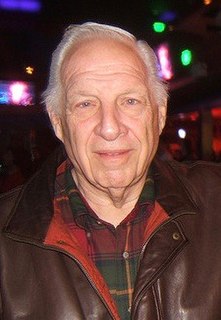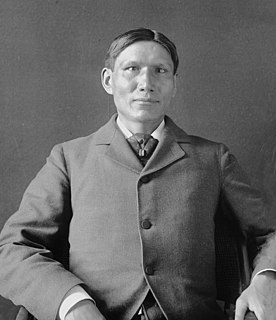A Quote by Maria Montessori
The most important period of life is not the age of university studies, but the first one, the period from birth to the age of six.
Related Quotes
There are many who hold, as I do, that the most important part of life is not the age of university studies, but the first one, the period from birth to the age of six. For that is the time when a man's intelligence itself, his greatest implement, is being formed. But not only his intelligence; the full totality of his psychic powers.
When young men or women are beginning life, the most important period, it is often said, is that in which their habits are formed. That is a very important period. But the period in which the ideals of the young are formed and adopted is more important still. For the ideal with which you go forward to measure things determines the nature, so far as you are concerned, of everything you meet.
The most active period of the witchcraft trials coincides with a period of lower than average temperature known to climatologists as the "little ice age"...In a time period when the reasons for changes in weather were largely a mystery, people would have searched for a scapegoat in the face of deadly changes in weather patterns. 'Witches' became target for blame because there was an existing cultural framework that both allowed their persecution and suggested that they could control the weather.
The whole of life is a journey toward youthful old age, toward self-contemplation, love, gaiety, and, in a fundamental sense, the most gratifying time of our lives. . . . "Old age" should be a harvest time when the riches of life are reaped and enjoyed, while it continues to be a special period for self-development and expansion.
A life cycle approach to food security will imply attention to the nutritional needs of a human being from conception to cremation. The most vulnerable but neglected segment is the first 1,000 days in a child's life - the period from conception to the age of two, when much of the brain development takes place.
How old are you? If your first reflex is to reply with your chronological age, the number on your birth certificate, you are only one-third correct. There are actually two additional, and more important, indicators of age. And the exciting news is that it is within your power to adjust both of these other "age indicators" and truly grow younger and live longer.
Science as we now understand the word is of later birth. If its germinal origin may be traced to the early period when Observation, Induction, and Deduction were first employed, its birth must be referred to that comparatively recent period when the mind, rejecting the primitive tendency to seek in supernatural agencies for an explanation of all external phenomena, endeavoured, by a systematic investigation of the phenomena themselves to discover their invariable order and connection.



































